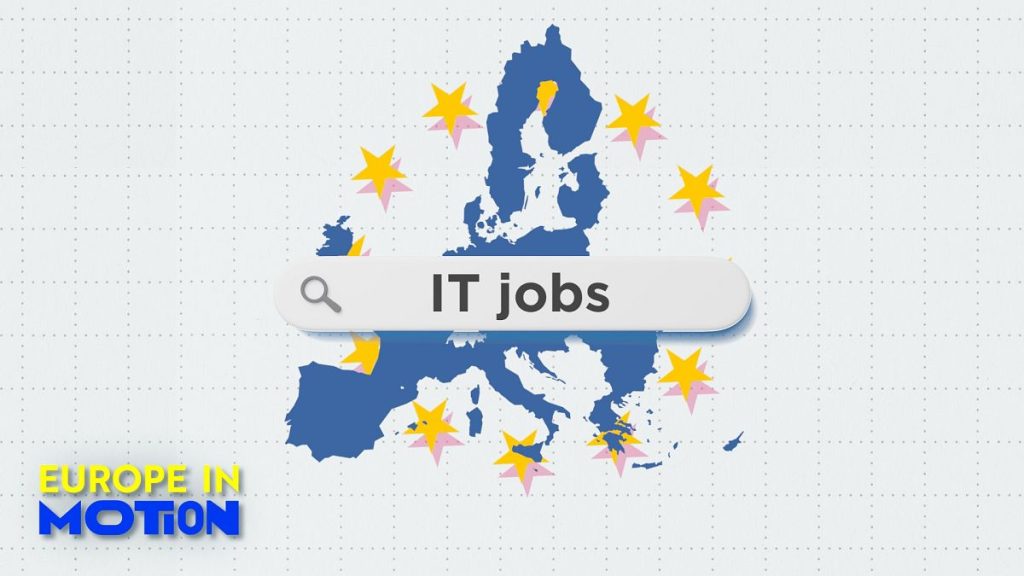The European IT sector is experiencing a significant talent shortage, with a widening gap between the demand for skilled professionals and the available workforce. This scarcity is impacting businesses across the continent, hindering growth and innovation. Eurostat data reveals that over half of EU businesses struggle to fill ICT specialist roles, a figure that has escalated by 20% in the past decade. This challenge disproportionately affects larger companies, with nearly 70% reporting difficulties in recruiting the necessary IT talent. This talent deficit is not uniform across the EU; certain countries face more acute shortages than others, creating a complex landscape for both employers and job seekers.
Germany emerges as a key focal point in this talent crunch, exhibiting the highest demand for ICT specialists among EU nations. Alongside Germany, the Czech Republic, Malta, Austria, and Luxembourg all report significant recruitment challenges, with over 65% of businesses in these countries unable to fill their IT vacancies. The situation becomes even more critical for large enterprises in these countries, with shortage rates exceeding 70% in many cases. For example, Malta reports a staggering 84% of large businesses grappling with IT talent shortages, followed closely by Germany at 80%. This acute shortage highlights the urgent need for targeted interventions and strategies to address the talent gap in these specific regions.
In contrast, countries like Spain, Poland, and Bulgaria experience relatively fewer recruitment challenges, although even in these nations, a significant proportion of companies, over 30%, still struggle to find the necessary IT expertise. This disparity across the EU underscores the need for tailored solutions that address the unique challenges faced by each country. Factors such as education systems, immigration policies, and industry development can all contribute to these variations in talent availability. A comprehensive approach is needed to bridge the gap and ensure a balanced distribution of IT skills across the European Union.
Several factors contribute to this widespread talent shortage. Key among them is the lack of qualified applicants, with many businesses receiving insufficient applications for open IT positions. This points to a potential mismatch between the skills sought by employers and those possessed by the available workforce. Additionally, the high salary expectations in the IT sector, driven by competitive demand, can pose a challenge for some companies, particularly small and medium-sized enterprises. While the ICT sector consistently outpaces average wage growth across Europe, this high earning potential also contributes to the recruitment challenges faced by companies struggling to compete with larger, more resource-rich organizations.
The increasing demand for specialized skills in emerging technologies further complicates the recruitment landscape. Roles such as data scientists, data engineers, and cybersecurity specialists are in particularly high demand, often requiring a unique combination of technical expertise and practical experience. Companies seeking these specialized skills often find themselves competing for a limited pool of qualified candidates, driving up salaries and creating a challenging recruitment environment. This demand for specialized skills underscores the need for ongoing investment in education and training programs to equip the workforce with the skills required to meet the evolving needs of the IT sector.
The specific skills in high demand vary across the EU, reflecting the diverse needs of different industries and regions. However, some roles consistently command high salaries and are in particularly short supply. For instance, in Germany, the role of Chief Information Technology Officer (CITO) is one of the highest-paid IT positions, with salaries ranging from €150,000 to €180,000 per year, depending on experience. Similarly, specialized consultancy roles, such as those in SAP/ERP, are also highly sought after, with base salaries reaching €100,000. Data-related roles, including data engineers and data scientists, are also in high demand, with salaries typically falling within the €100,000 to €120,000 range. These high salaries reflect the critical importance of these roles in driving digital transformation and innovation across industries.














